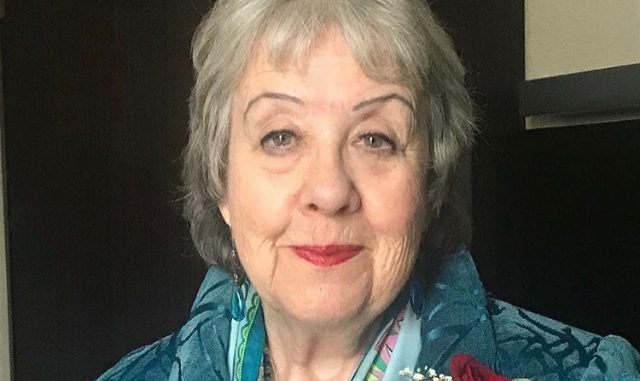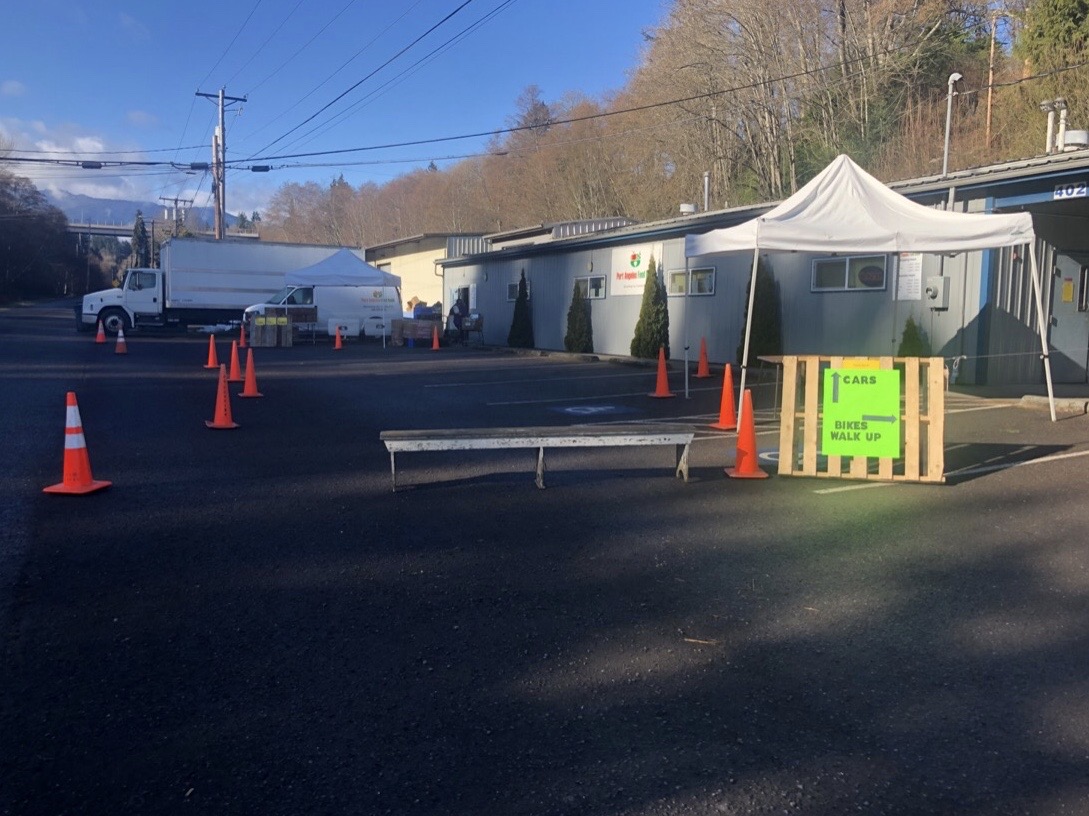
Tess Gallagher, poet, short story writer, and teacher, is one of Port Angeles’ treasures, with many ties to Peninsula College. https://www.passthebuc.com/2016/11/empathy-is-the-most-important-thing-for-a-writer-to-have-poet-says/ She has been a consistently published writer since the 1960s, and the recipient of many honors. Gallagher is kind to students, and granted the Buc an interview in late June of 2020. https://www.poetryfoundation.org/poets/tess-gallagher
“You know I am a meditative poet and have no experience in government or in many of the areas you mention. I would only be shooting at stars to even begin to try to answer, but poets do just that: we shoot at stars…those elements in our lives that seem unreachable, unable to be compassed. We speak toward what we don’t understand all the time.” – Tess Gallagher.
Q: How have COVID-19 and the nationwide calls for justice for all people affected you on a personal level? How about artistically?
A: Well, I have helped my black poet friend Gary Lilley get his poem “To Breathe” about for George Floyd out to as many people as I could. We framed a copy of it and carried it to a memorial in Pt. Townsend, Wa. near where Gary lives. https://buddybreathing.wordpress.com/2020/04/28/napomo-poetry-party-27/ http://www.kahini.org/5-quick-questions-with-gary-lilley/
When six black poets read their poems on YouTube on Juneteenth I spread the word to as many poets and lovers of freedom and poetry as I could so we could all watch and celebrate these poets and poetry by black writers at large. I also contributed to “TAKE A STAND: ART AGAINST HATE, A Raven Chronicles Anthology.” https://www.ravenchronicles.org/books/takeastand.
Q: What role can a creative writer play in times of great change?
A: One needs to keep informed—to read the books that are carrying the news. For instance here are recent books I have read: Ta-Nehisi Coates: “Between the World And Me,” “The Known World” by Edward P. Jones, “Nickel Boys,” by Colson Whitehead, “White Fragility: Why it’s so Hard for White People to Talk About Racism,” by Robin Diangelo, Jericho Brown: “THE TRADITION” (Pulitzer Prize winning book of poetry), “White Awake: An Honest Look at What it Means to Be White,” by Daniel Hill. Lawrence Matsuda: “My Name is Not Viola”, about the internment of 120,000 Japanese American citizens during WWII.* In a wider arena: “BECOMING ENLIGHTENED,” by the Dalai Lama. I read widely in meditative literature from many cultures.”
*Buc Note: Gallagher and Matsuda have collaborated. https://plumepoetry.com/featured-selection-12/
Q: How does one keep up?
A: Well your reading light will be burning until 2 in the morning! And you ask a wider range of people what they are reading, what is affecting how they think.
Q: What role can the people who staff a community college play in times of social upheaval?
A: They can offer classes that challenge the students to learn to think in a less constricted way—to open their notions of what matters in our lives and to offer classes that develop empathetic skills as well as intellectual capacities. Black, Hispanic, Japanese Americans, Native Americans—learning about and with! All these cultures are essential.
Q: What practical advice do you have for students who realize they would prefer to live professional lives centered on creative writing?
Writing is a “vocation” as I practice it. You can’t really make enough of a living usually by just being a poet. You need to be able to teach writing or have another set of skills to support your love of poetry. Maybe being an environmentalist and working at helping the ecology of the planet would be a good second set of skills, as you could write your poetry or essays to accompany the notions you gain from that work. This is just an example. What about being a musician if you have another talent like that? It is easier to earn a living for musicians, painters and sculptors, fiction writers and journalists. Nobody appears at your door and says: hey, we’d like to sponsor you to be a poet. No, you have to make that very interesting and hard journey up for yourself.
Q: How do you balance being open to the enormous amount of pain people are experiencing during this time of death and exposure of societal injustice and protecting yourself from being overwhelmed by all you cannot do?
A: While it is a given that one cannot attend to every calamity one might encounter—some will call out more and one tends to answer accordingly. Usually we would be able to physically be in the presence of those we love who are suffering, but now we are held to our own company. Luckily, we have gotten better at technology now and are reaching out that way. I have done a number of Zoom readings on my local Bookstore Facebook (Port Book and News) to help the bookstore stay visible and active. Addressing the pains and losses of others is a great privilege. If we are free enough to be witnesses we have an obligation to carry the story of those enduring the crisis in its intensity.
Q: How do we know we truly understand well enough to express it?
A: We may not always know how to express what we are witnessing in any crisis. But we can try. I think the main word in my vocabulary as a writer is: try. So that is what I do. And a certain amount of failure is inevitable. I would say I am in the largest part a failed writer—one who tries and tries again. I don’t know that I really “succeed” in any one else’s terms. I have to admit that. But in the choosing of what I attempt—maybe already I stake out a bit of territory I am sincerely invested in and venturing toward and that I have found worth devoting myself to in some dimension.
Q: I’m of the opinion that when in a time of great sorrow and environmental devastation it is helpful to imagine better ways to live. Do you have any positive visions of a future the good people of the earth could create?
A: Well, we all dream of a place and time where we would be able to live unafraid and where our friends and those people less well off than us, those in hunger and poverty, would have a way to live that was not demeaning or meager.
When one learns that one in 10 children in America is going hungry it strikes at the heart. When one looks at the situation of incarcerations in our country one realizes a lot of changes have to be made. You can’t just throw people away in prisons.
Imprisoning black persons and persons of color until they make up the preponderance of our prison population has to be changed. It is one of our biggest industries and a very wrong-headed, wrong-hearted one at that. The practices of isolation within these prisons is cruel. Even failing to address the lack of education and the mental health of these prisoners is cruel. https://www.passthebuc.com/2020/11/deborah-espinosa-speaks-about-lfos/
Q: Can you tell me about an author or authors you admire who had a positive effect upon their society?
A: I would say W.H.Auden was right when he said “poets are the unacknowledged legislators of the world”. https://poets.org/poet/w-h-auden
Those writers I have admired and who have made an impact on their society:Raymond Carver, my late husband (I am prejudiced); Wislawa Szymborska..her selected poems, which won the Nobel Prize for Literature; Anna Akhmatova, great Russian poet who influenced me when I was young; Theodore Roethke, my great teacher and poet; Czeslaw Milosz, his Selected And Last Poems; Seamus Heaney, my late friend and fellow poet in Ireland, Nobel Prize winner.
Q: What poet was your earliest inspiration? Does this person still inspire you? How?
A: earliest inspiration as a poet was probably Theodore Roethke’s poetry. He was my professor at the University of Washington. He was famous by then and I somehow got a spot in his last creative writing class. No one knew it would be his last. It was a great honor and I go to Michigan, where he was born, often, to Saginaw, to the very home he was raised in to celebrate him and contribute to the foundation that celebrates his work. He was an inspirational teacher. So I also got many notions from him for my life as a teacher of writing. Yes, he still inspires me. I read his poetry at the grave of my late husband Raymond Carver every May 25 because they share the same birthday. They also curiously died just hours apart on Aug. 2 with some years between each other.
I love how Roethke could get into very challenging dark places of the psyche, and although I don’t have access to the same places, I have parallel places that I do go because of his challenge. https://www.poetryfoundation.org/poets/theodore-roethke



